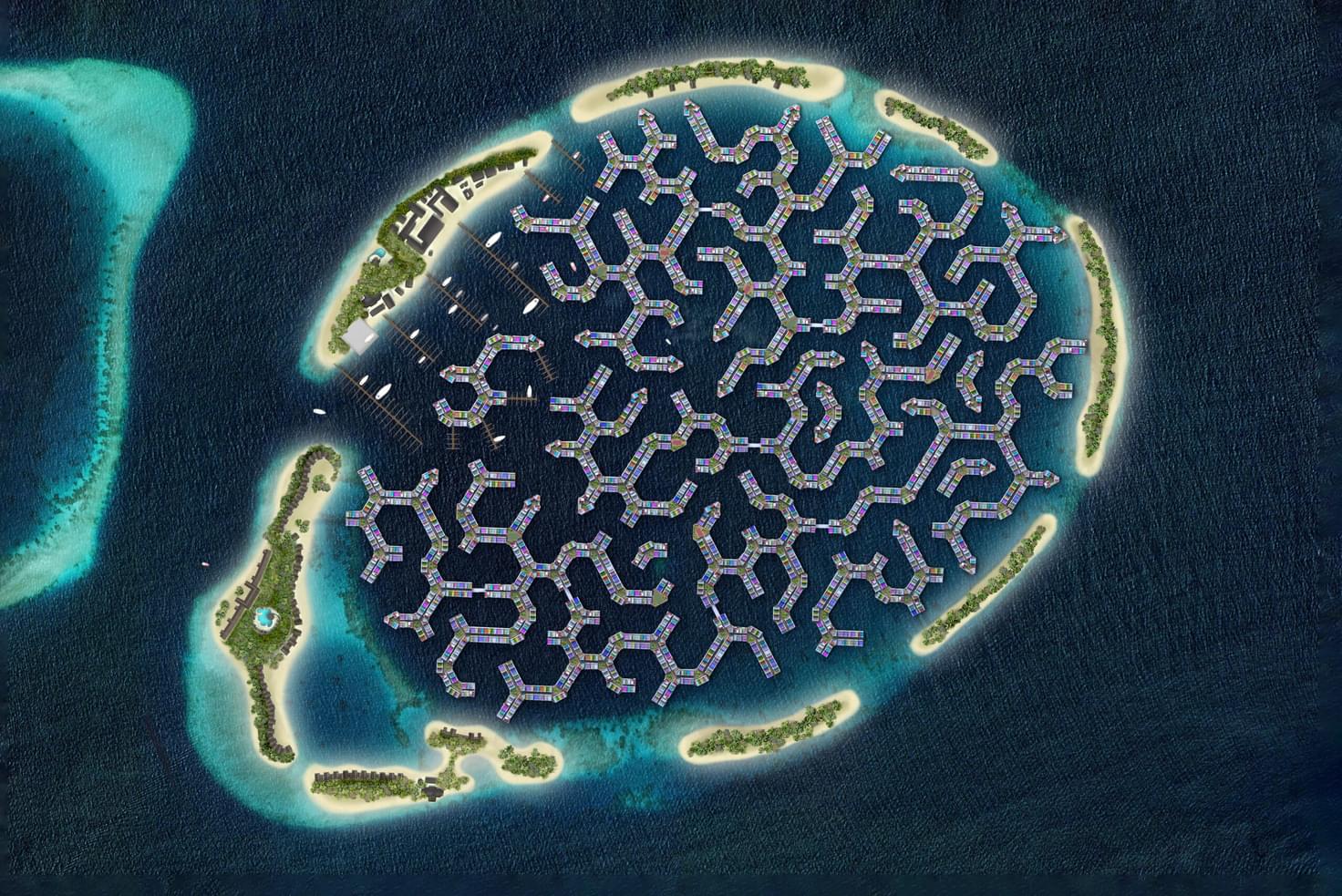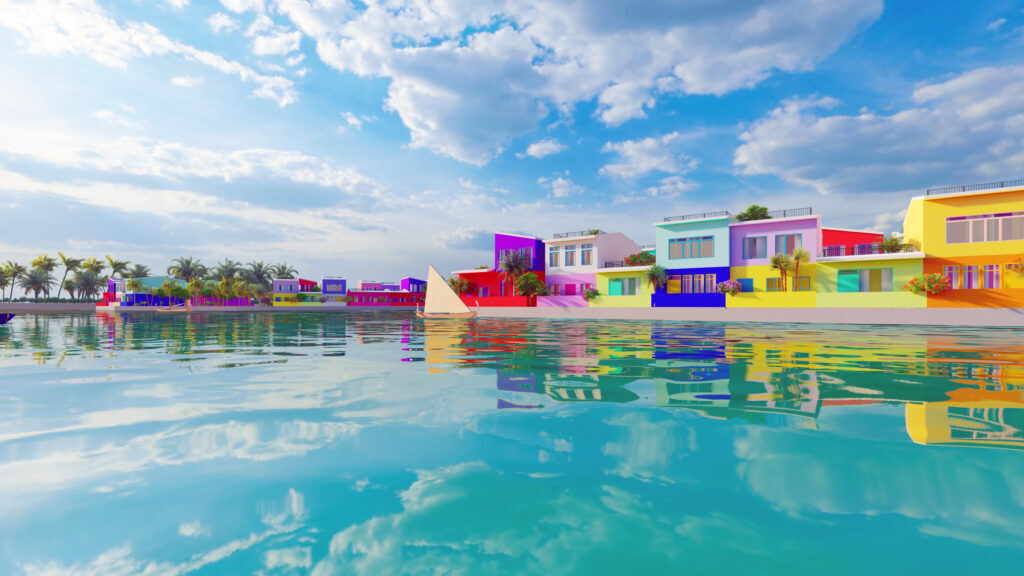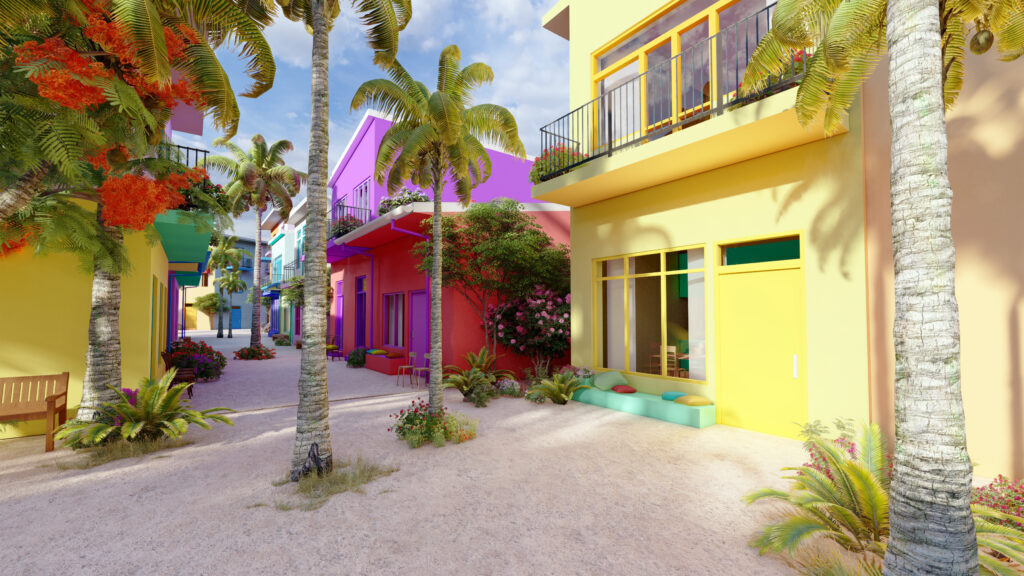
Words by Amy Packham
A floating city in the luxurious Maldives has been given the green light – in a bid to combat rising sea levels and climate change.
What exactly is a 'floating city'?
Well, there will be 5,000 housing units, tethered to a 500-acre lagoon. Why's this a good thing, we hear you ask? Because it has been designed to preserve and enhance its natural and cultural ecosystem.
The city will also have hotels, shops, and restaurants – but there won't be any cars. Only bikes or noise-free scooters.

How is this helping climate change?
Well, the city has been built as a solution to rising sea levels, as well as to combat overcrowding in the capital city. Did you know the Maldives is one of the nations most vulnerable to climate change?
The "floating city" has been proposed as an eco-friendly, sustainable city solution.
The project (apparently 10 years in the making!) is a joint venture between the government of the Maldives and Netherlands-based architecture studio Waterstudio.
The design, by Waterstudio, was thought through in great detail. The city will be “a nature-based structure of roads and water canals resembling the beautiful and efficient way in which real brain coral is organised.

It'll also stimulate coral growth with artificial coral banks, and will not require any land reclamation.
What else do I need to know?
The city will start being built in January 2023, and likely take around five years to complete.
This article aligns with the UN SDG Climate Action and No Poverty.